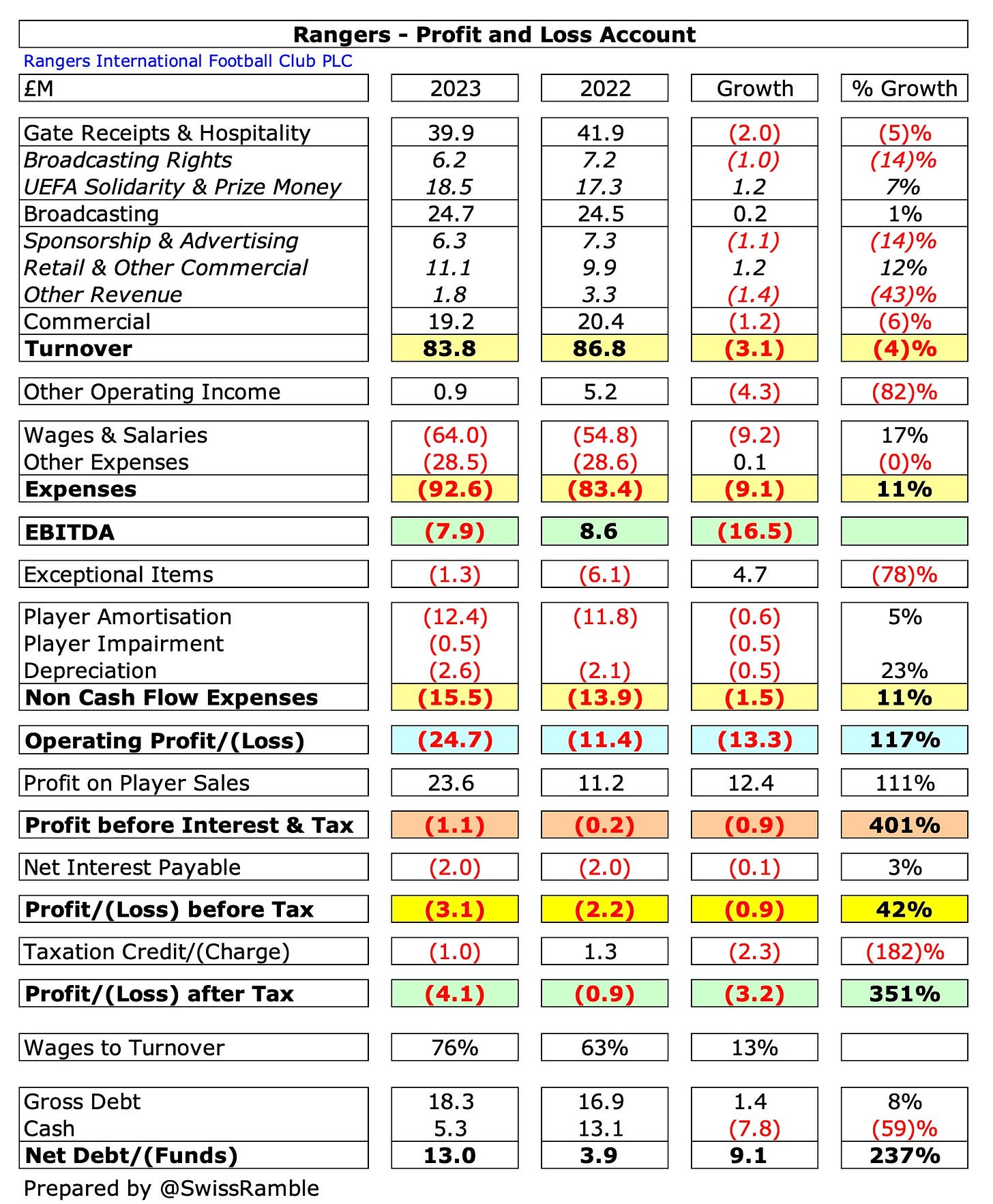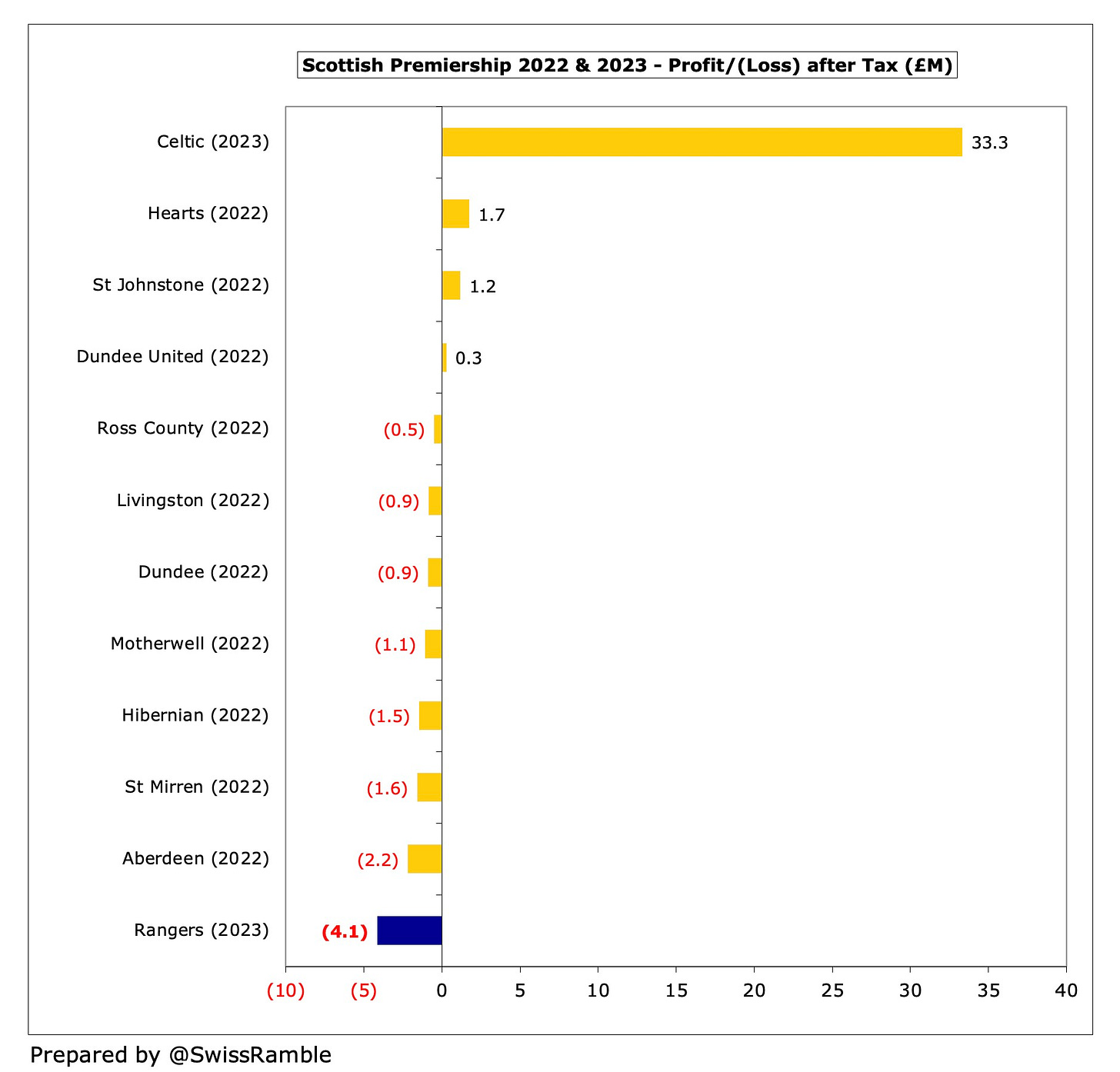Rangers 2022/23 accounts covered a season when they returned to the Champions League for the first time in 11 years, though chairman John Bennett admitted that the results were “very disappointing”, as they ended up losing all six group games.
It was a case of “so near, so far”, as they finished second in the SPFL Premiership behind Celtic, also losing to their great rivals in the Scottish Cup semi-finals and League Cup final.
For the second season in a row, there was also a change of manager in November, as Giovanni von Bronckhorst was replaced by Michael Beale, who was subsequently relieved of his duties last month and succeeded by former Club Brugge and Monaco coach Philippe Clement.
Profit/(Loss) 2022/23
Rangers’ pre-tax loss slightly increased from £2.2m to £3.1m, as revenue fell £3m (4%) from club record £87m to £84m and other operating income dropped £4m (82%) from £5m to £1m, while operating expenses climbed £11m (11%) from £97m to £108m.
This was largely offset by exceptional charges falling £5m (78%) from £6m to £1m and especially profit from player sales more than doubling from £11m to a new club high of £24m.
Loss after tax widened from £0.9m to £4.1m, as a £1.3m tax credit flipped to a £1.0m charge.
Rangers’ revenue decrease was largely driven by having no European football after the group stage, which led to reductions in gate receipts & hospitality, down £2m (5%) from £42m to £40m, and commercial, down £1m (6%) from club record £20m to £19m. Broadcasting rose very slightly to £25m.
Despite the lower revenue, Rangers still invested more money in the squad, as the wage bill increased £9m (17%) from £55m to a new club record of £64m, while player amortisation rose £0.6m (5%) to £12.4m. In addition, they booked £0.5m player impairment.
Depreciation was also up £0.5m (26%) to £2.6m, while other expenses were flat at just under £29m.
Rangers £4.1m loss after tax is actually the worst financial result in Scotland over the last two years, though many clubs have not yet published their 2022/23 accounts. In stark contrast, Celtic posted a £33m profit.
As a rule, Scottish clubs run a tight ship, so everyone except Rangers and Celtic can be found in a narrow range between £2m profit and £2m loss, i.e. effectively break-even.
If we look at the results before tax, the difference is even larger, as Rangers’ £3.1m loss is £43.8m worse than Celtic’s £40.7m profit, which in fairness is a record for Scotland.
Keep reading with a 7-day free trial
Subscribe to The Swiss Ramble to keep reading this post and get 7 days of free access to the full post archives.







